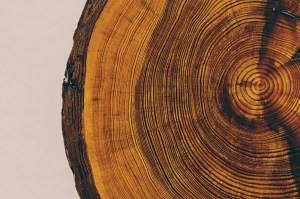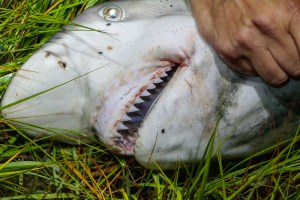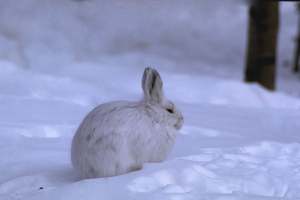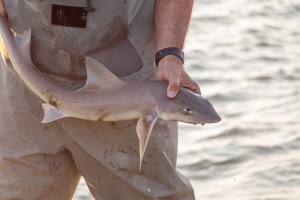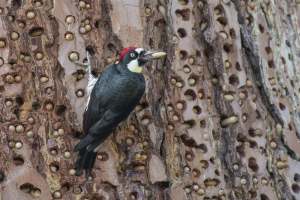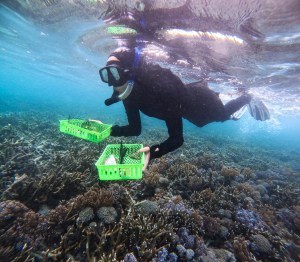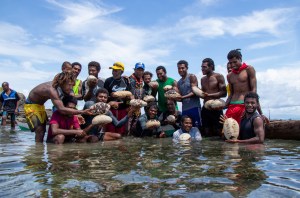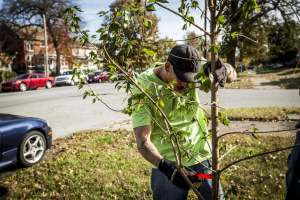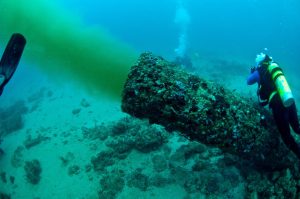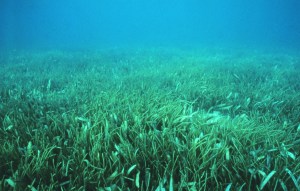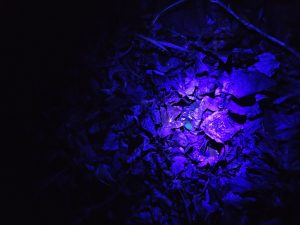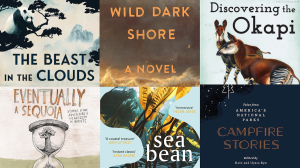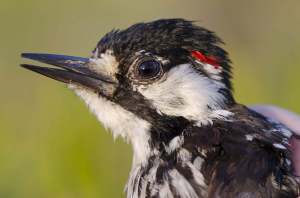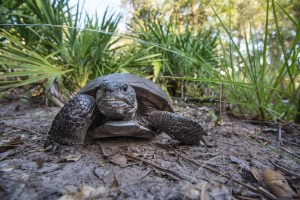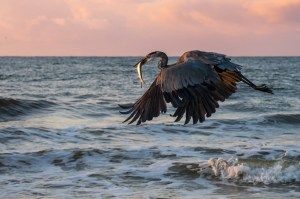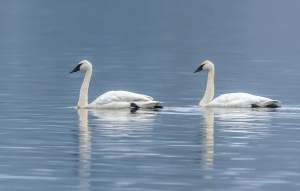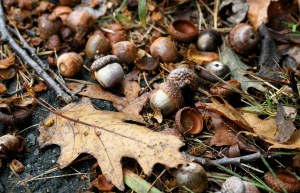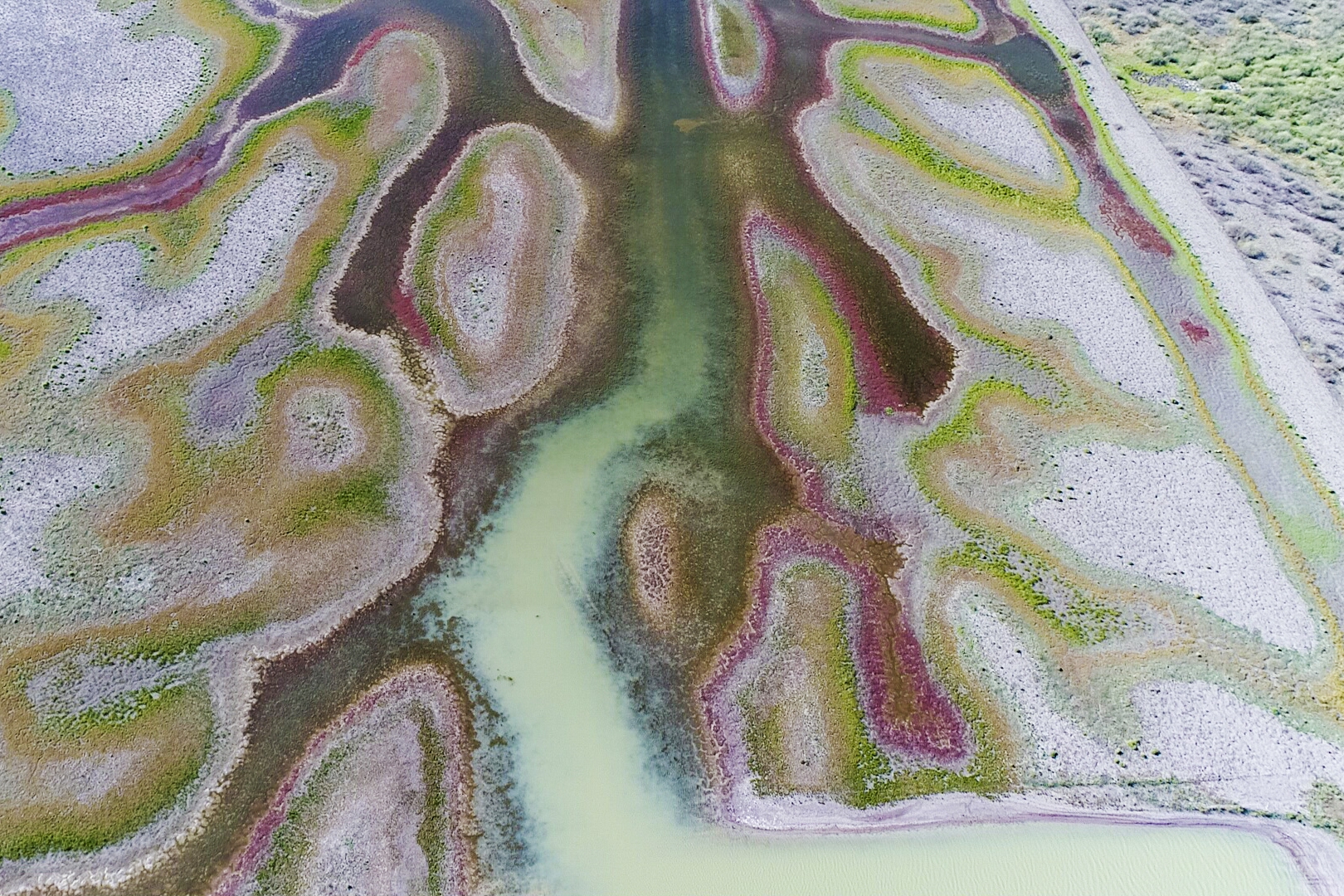
Connect with Nature
Our stories bring nature to you… in your backyard, a nearby park, and around the world. From wildlife to wild places, follow your curiosity and explore with us.
Find Wildlife
Is that a coyote? Our tips for how to find, identify, & understand wildlife.
Terms

Reading the Tree Rings
By reading tree rings, scientists can see evidence of rainy years, periods of drought, bug infestations, forest fires and even volcanic eruptions.
Catching Sharks for Science
On Long Beach Island, volunteer anglers help researchers uncover the hidden journeys of sharks in threatened salt marsh ecosystems.
How Extreme Winter Weather Can Affect Wildlife
How extreme winter weather can challenge many species, from opossums to manatees to Carolina wrens. What are you seeing in your neighborhood?
Seeing the Salt Marsh for the Sharks
Shark tagging in New Jersey’s salt marshes reveals migration patterns and shows how restoring wetlands strengthens vulnerable coasts.
It Takes a Village: What Birds Teach Us About Cooperation and Family
Why do some birds raise chicks that aren’t their own? A look at the surprising strategy of cooperative breeding and what drives it.
Stress-Testing Corals to Find Raja Ampat’s Most Resilient Reefs
Low-tech field science and community partnerships combine to help identify the most climate-resilient reefs in Raja Ampat.
Explore Outdoors
Explore nature near you & the places where TNC works.

Case Study: Sustainable Sea Cucumber Fisheries Offer Both Rewards & Challenges
Sustainable fisheries can be a win-win solutions for both conservation and local communities, especially in the Indo-Pacific. But establishing them comes with unique challenges.
Greener Cities, Cleaner Air: How Urban Design Can Help Save Native Birds
Urban greening and pollution reduction restore bird habitats. This research shows how conservation transforms cities for people and nature.
Wastewater Pollution and the Fight for Coastal Resilience
Disover the urgent issues of wastewater pollution and how sustainable practices can help restore our vulnerable ecosystems.
Can We Turn Back the Tide on Wastewater Pollution?
Tampa Bay proves recovery is possible: decades of science and collaboration restored seagrass and water quality—offering lessons for coasts worldwide.
When Deer Marks Glow in the Dark?
It’s true: deer signs glow in the dark. And we’re not talking about signs along the road.
Cool Green Holiday Book Review 2025
Six of our favorite conservation and nature books to enjoy this holiday season.
Know Your Nature
Stories that satisfy your curiosity about the natural world.

Grazing Lands as Climate Solutions: Key Practices for Carbon and Biodiversity
Study finds wetland restoration, pasture planting, and adjusted grazing can boost soil carbon and cut emissions—but more research is needed for lasting impact.
Family, Survival and Change: The Secret Life of the Red-cockaded Woodpecker
Lauren Pharr uncovers how family bonds and teamwork help red-cockaded woodpeckers thrive in longleaf pine forests, even as climate change reshapes their world.
Meet the Gopher Tortoise, Hero of the Longleaf Pinelands
Gopher tortoises are one of Florida’s most fascinating reptiles, and a keystone species of the longleaf pine ecosystem.
Growing Seagrass? Better Add a Sprinkle of Bird Poop
TNC and its partners are restoring habitat with the help of a little bird-poop fertilizer.
Meet the 7 Swans a-Swimming
Those seven swans a-swimming aren’t just for the holiday song. There are seven swan species—and each has its own wild story.
The Mystery of the Mast Year
Scientists still aren’t sure why some populations of trees drop extraordinary quantities of nuts, fruits, or seeds every few years—or how they coordinate across vast ranges to do so.
